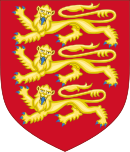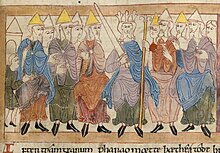| This article is part of a series within the Politics of the United Kingdom on the |
 |
|---|
Politics of England forms the major part of the wider politics of the United Kingdom, with England being more populous than all the other countries of the United Kingdom put together. As England is also by far the largest in terms of area and GDP, its relationship to the UK is somewhat different from that of Scotland, Wales or Northern Ireland. The English capital London is also the capital of the UK, and English is the dominant language of the UK (not officially, but de facto). Dicey and Morris (p26) list the separate states in the British Islands. "England, Scotland, Northern Ireland, the Isle of Man, Jersey, Guernsey, Alderney, and Sark.... is a separate country in the sense of the conflict of laws, though not one of them is a State known to public international law." But this may be varied by statute.
The United Kingdom is one state for the purposes of the Bills of Exchange Act 1882. Great Britain is a single state for the purposes of the Companies Act 1985. Traditionally authors referred to the legal unit or state of England and Wales as "England" although this usage is becoming politically unacceptable in the last few decades. The Parliament of the United Kingdom is located in London, as is its civil service, HM Treasury and most of the official residences of the monarchy. In addition, the state bank of the UK is known as the "Bank of England".
Though associated with England for some purposes, the Isle of Man, Jersey and Guernsey have their own parliaments, and are not part of the United Kingdom, the European Union or England.
Prior to the Union, in 1707, England was ruled by a monarch and the Parliament of England. Since the Union, England has not had its own government.


© MMXXIII Rich X Search. We shall prevail. All rights reserved. Rich X Search
